Home » Jazz Articles » Building a Jazz Library » The Best Live Recordings: Rock and Beyond...
The Best Live Recordings: Rock and Beyond...
Original Preface, 2004
Okay, Okay. I noted that I had said that I would conclude my list of The Top Ten Live Rock Recordings with a list of five rather than ten other live discs to be considered. I love live music and that is why I hedged. Here are a couple more recordings deserving some modicum of recognition...Preface, 2015
Live recordings continue to captivate the imaginations of the young and old alike. Since writing these "Best Live Rock Recordings" articles, I look back and see that my efforts were too narrow and could have better considered live recordings technically outside the rock music realm.That said, I have decided to revamp this particular article and use it as an endless repository of links to full articles addressing live music outside of jazz. There has been an effort to provide comprehensive box sets for many of these seminal live recordings that have added greatly to the live discographies of these artists and these deserve updates for the music addressed herein.
I will be making my way through this original list, replacing these brief vignettes with links to more thorough and prospective considerations. This present article will then become a living document to which I add successive reviews and reconsiderations of live recordings.

The Grateful Dead: Europe '72 (Warner Brothers, 1972)—When asked the best introduction to the Grateful Dead for the uninitiated, I recommend Europe '72. That opinion has not changed in the intervening 40 years. This tour is one storied in the history of the band. It was the group's great bluesman, Ron "Pigpen" McKernan's last tour before he died of drink at the age of 27 in 1973. It sported the husband a wife teams of Keith and Donna Godchaux who brought a soulful presence to an already soulful band. It was the third double-or triple-LP live recording in the previous five releases, establishing the Dead as a preeminent live band... continue.

Rory Gallagher: Irish Tour '74 (Polydor, 1974) —In the end, music is a personal soundtrack to one's life. It is tied to a specific time and place, circumstances and memories that are so tightly integrated in one's experience that having memory with no music cannot even be imagined, much less considered. In the summer of 1974, I went from Little Rock to Chicago to visit my closest childhood friend. While there I purchased two LPs for our listening pleasure, Eric Clapton's 461 Ocean Boulevard (RSO, 1974) and Rory Gallagher's Irish Tour '74 (Polydor). I had just started listening to the blues and had fallen under the spells of the Allman Brothers Band and Joe Cocker. Like most middle-class white kids of the era, I was introduced to the blues through the British Invasion and southern rock only to discover the real story much later...continue.
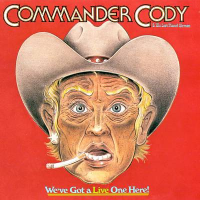
Commander Cody: We've Got A Live One Here (Warner Brothers, 1976/1996)—Pimply, hormonal, lower-middle class teenaged boys growing up in the 1960s and '70s were easy marks for fun, subversive, and slightly dangerous music. However, the music being consumed was mostly a generation or two beyond its origin. For Example, "Spoonful" on Cream's 1966 debut recording Fresh Cream (Atco) was an ear-opening introduction to extended performance that would come de rigueur by the 1970s. On Fresh Cream the composition is credited to Willie Dixon who commandeered the song in 1960 for Howlin' Wolf to record for it for Chess Records. Commandeered, because Dixon lifted this song from Charlie Patton's 1929 Paramount recording "A Spoonful of Blues." Patton, in turn, conjured his version from Papa Charlie Jackson's 1925 recording "All I Want is a Spoonful" and Luke Jordan's 1927 "Cocaine Blues." What the British Invasion did was introduce white teenagers to music that had been present all the time, updating it and feeding it back to America's youth by the "spoonful..."continue.
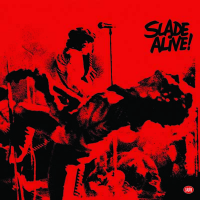
Slade: Alive (Polydor International, 1972/1998)—None of that "Cum on Feel the Noize" shit here. Noddy Holder was in full bloom back in his salad days, screaming his way through John Sebastian's "Darling Be Home Soon" and Steppenwolf's "Born to Be Wild," not to mention Alvin Lee's "Hear Me Callin'" and Holder's own "In Like A Shot From My Gun." Not another voice like that, unless one considers Bon Scott. This was a rightful staple for AOR radio in the 1970s and, of course "The Mightly 1090—KAAY—"Beaker Street."

Jimi Hendrix/Otis Redding: Live at Monterey (Reprise 2029, 1972)—This is my sentimental favorite. I was about 10 years old when I first heard this and what I was most knocked out about was Jimi Hendrix playing Dylan's "Like A Rolling Stone" and Otis Redding's soul searching vocals on "Try a Little Tenderness." Recorded at the Monterey International Pop Festival during the Summer of Love 1967, it was this recording that made stars of Hendrix and Redding. The definitive live recordings of these two artists before Hendrix's Band of Gypsies (MCA 11931, 1999) and Redding's In Person At the Whiskey A Go-Go—Live (Rhino 70380, 1996). Both candles extinguished before 1970 closed.
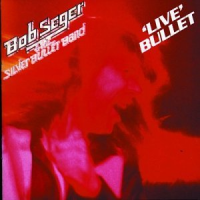
Bob Seger and the Silver Bullet Band: Live Bullet (Capitol, 1976)/ Nine Tonight (Capitol 46086, 1981)—Taken together, these two live recordings, originally released as two 2-LP sets, provide a snapshot of '70s turning into '80s popular music by a journeyman coming into his own. Bob Seger had already been a mover in the music industry. Live Bullet released just prior to Night Moves along with that record was credited with nailing the final nail in the coffin of Punk Rock. Starting with "Nutbush City Limits" and ending with "Let It Rock," while passing through "Beautiful Loser" and "Katmandu," Live Bullet is an arena rockfest. While not as good as its predecessor, Nine Tonight nevertheless delivers that same Seger punch.
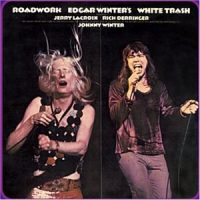
Edgar Winter's White Trash: Roadwork (Epic, 1971)—Roadwork is the tipple point where Rock and Roll, Blues, Gospel, and R&B meet on the dark end of "Tobacco Road." Armed with brother Johnny Winter, Rick Derringer and a full horn section, Edgar Winter shows that he once had balls before losing them with the tepid "Frankenstein" and beyond. With songs culled from the Trash's first album and the American R&B songbook, Roadwork seethes with rhythm. "Tobacco Road," "Save the Planet," and "Rock and Roll Hoochie Coo" make this collection worth the modest price of admission.

Johnny Winter And: Live (Columbia, 1971)—There is no other live rock and roll disc that is both so wrong and so perfect at the same time. Johnny Winter led a power trio in the early 1970s supplemented by guitarist Rick Derringer (who later broke through with the Derringer original "Rock and roll Hoochie-Coo" which Winter had also recorded). This particular live recording, Johnny Winter And Live smacks of finishing a contract. It documents two shows: one at the Fillmore East in New York City and at Pirate's World in Dania, Florida sometime in the fall of 1970. In this day of immediate data, admitting that one does not know an exact date is impressive. That is one reason this recording is such a mess...continue.
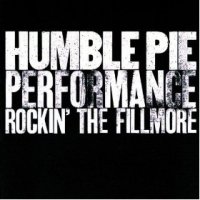
Humble Pie: Rockin' the Fillmore (A&M, 1971)—A happy piece of British Invasion fluff, Humble Pie was never as essential as the Rolling Stones or Faces, but did nevertheless provide rock music with an unforgettable rock voice in Steve Marriott and credible rock guitarist turned pop culture Twinkie Peter Frampton. Like Edgar Winter, Frampton used to have balls and they are quite in evidence here. "I Don't Need No Doctor" was an AOR must and still can excite. Since this release, Pie's complete stand at the Fillmore has been released. "Walk on Gilded Splinters" Baby!
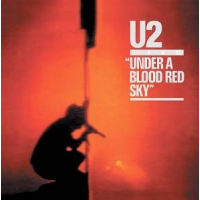
U2: Under A Blood Red Sky (Island, 1983)—None better than four Irishmen to stir up a revolution. After releasing three well received studio efforts, U2 stepped out on the stage and provide a mini-album culled mostly from the earlier albums but presented with confident muscle and rage. This is the definitive "Sunday Bloody Sunday" and "Gloria" and the definitive live recording of the 1980s. the recording has since been expanded to a proper recording length capturing the most important band in the 1990s and 2000s where they were in their corrosive prime, hungry and angry.
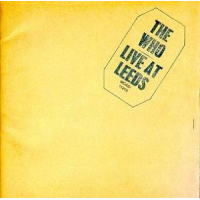
The Who: Live at Leeds (MCA, 1970)—Post-Tommy , pre-Who's Next, Leeds illustrated that Roger Daltrey was the finest rock vocalist of his generation and Peter Townsend the finest composer of his. Loud and proud, "Summertime Blues" sums up the frustrations of the 1960s, repackages them and offers them as a gift to the 1970s. The Deluxe Edition restores all of the Tommy material to the show, making this not only one of the most significant live recordings of the period, but The Who's roaring approach to their flawed masterpiece, Who's Next (Decca, 1971).
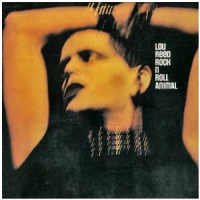
Lou Reed: Rock n' Roll Animal (RCA, 1974)—for "Heroin," of course.
Comments
Tags
For the Love of Jazz
 All About Jazz has been a pillar of jazz since 1995, championing it as an art form and, more importantly, supporting the musicians who create it. Our enduring commitment has made "AAJ" one of the most culturally important websites of its kind, read by hundreds of thousands of fans, musicians and industry figures every month.
All About Jazz has been a pillar of jazz since 1995, championing it as an art form and, more importantly, supporting the musicians who create it. Our enduring commitment has made "AAJ" one of the most culturally important websites of its kind, read by hundreds of thousands of fans, musicians and industry figures every month.






















